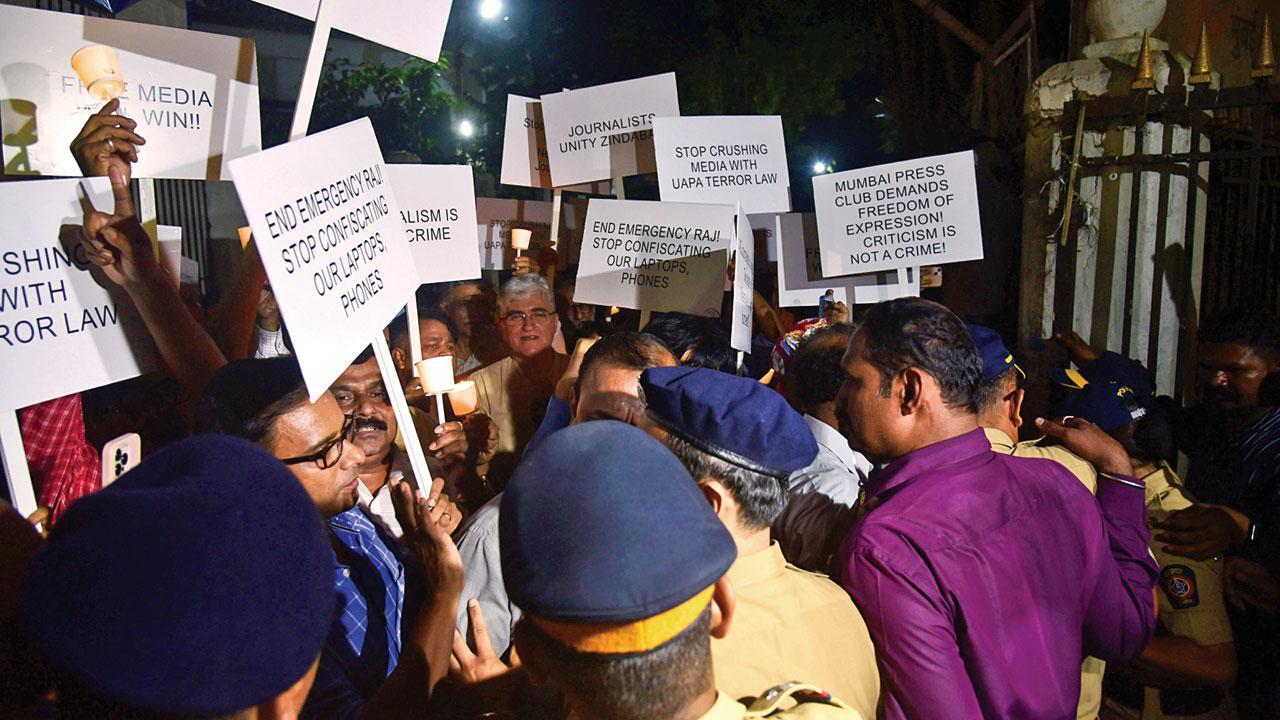From Bhima Koregaon to NewsClick
Updated On: 23 October, 2023 05:35 AM IST | Mumbai | Ajaz Ashraf
From arrests based on complaints citing ‘secret inputs’ to the seizure of electronic devices without securing them, both cases reveal the malice of the gods of the hell named UAPA

Members of media organisations protest against the Delhi police’s raids on journalists affiliated with NewsClick, in Mumbai, on September 5. Pic/Atul Kamble
 The Bombay High Court began hearing last week the petitions of professor-activist Shoma Sen and researcher-activist Rona Wilson, two among the 16 booked under the Unlawful Activities (Prevention) Act in the Bhima Koregaon case. Their plea is that the chargesheets against them should be quashed as the prosecution evidence against them was fabricated and planted on electronic devices the police seized.
The Bombay High Court began hearing last week the petitions of professor-activist Shoma Sen and researcher-activist Rona Wilson, two among the 16 booked under the Unlawful Activities (Prevention) Act in the Bhima Koregaon case. Their plea is that the chargesheets against them should be quashed as the prosecution evidence against them was fabricated and planted on electronic devices the police seized.
Also last week, the Supreme Court began hearing the petitions challenging the arrest of NewsClick’s founder-editor Prabir Purkayastha and its Human Resources head Amit Chakraborty. They were arrested under an FIR that invoked the UAPA. From Bhima Koregaon to NewsClick, India continues its journey through a hell called UAPA, on a path that deviates little.



